Hello and welcome!
This week we marked the 50th anniversary of the assassination of Dr. Martin Luther King, Jr. Of course, there were many observances throughout the country. I was very pleased to have been able to attend the breakfast here in the archdiocese for the Martin Luther King holiday, where many people who knew Dr. King personally were present, and some of the early activists in the civil rights movement gave beautiful testimonies.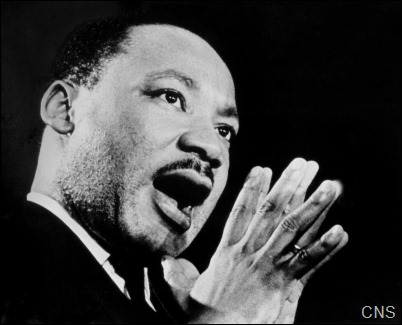
The assassination of Dr. King is one of those events that make such an impact on a person that they always remember precisely where they were when they heard the news. For myself, I was returning to Capuchin College from St. Matthew’s Cathedral in Washington, D.C., where I had been teaching ESL classes to Hispanic immigrants, and I had some ladies in my car who I was going to drop off at their homes. But, when we came up 14th Street, we found ourselves in the middle of riots with fires, looting and people throwing stones at cars. It was a very terrifying experience particularly because, in that moment, we had not yet realized what happened. However, the people were respectful of the clergy, so they allowed me to pass by, although it was a very harrowing event. I thought for sure that something terrible would happen to us.
When we got back to Capuchin college, we went to the tower, which is the highest point in Washington, and from there we could see the more than 700 fires burning in the city. 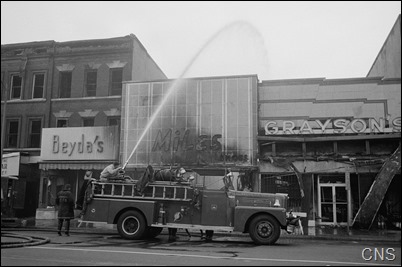 What is more, the White House was surrounded by tanks and there were soldiers with bayonets on every street corner. It was a very frightening time. It was very sad that a man whose life was dedicated to nonviolence should perish in such a violent way and then to have that violent reaction afterward, but clearly, it was a result of people’s utter frustration.
What is more, the White House was surrounded by tanks and there were soldiers with bayonets on every street corner. It was a very frightening time. It was very sad that a man whose life was dedicated to nonviolence should perish in such a violent way and then to have that violent reaction afterward, but clearly, it was a result of people’s utter frustration.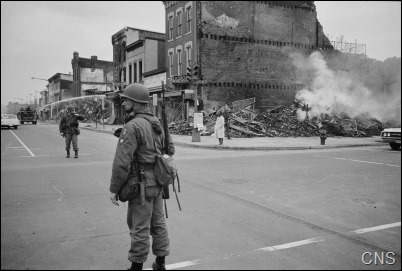
Dr. Martin Luther King made an incredible contribution to our country and, although the work of overcoming racial prejudice is far from over, the advances that came about because of his life and ministry — and ultimately the sacrifice of his life — has made an extraordinary difference in the history of the United States. It is particularly comforting to realize that it was his Christian faith and his devotion to the word of God that was the deepest motivation of his life. His was not a political stance but simply the manifestation of his belief that every human being is made in the image and likeness of God, is a child of God, and that we all have a responsibility to care for each other and respect each other. So, after 50 years we are still filled with gratitude for the extraordinary sacrifice of his life and all that he did.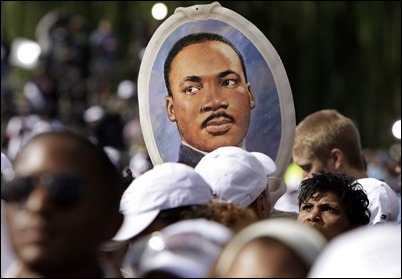
Of course, last week was Easter and, as we always do, we celebrated our Triduum and Easter liturgies at the Cathedral of the Holy Cross. However, because of the ongoing renovations, we held our celebrations in the lower church this year.
We began our Triduum celebrations with the anticipated Office of Holy Thursday that is used for the service of Tenebrae.
Tenebrae is Latin for “darkness,” and the service involves the praying of the psalms and the chanting of the lamentations from the Old Testament. We also chant the Benedictus from lauds of Holy Thursday.
Father Pablo Gomez was our preacher at the Tenebrae service and the choir sang the Lamentations.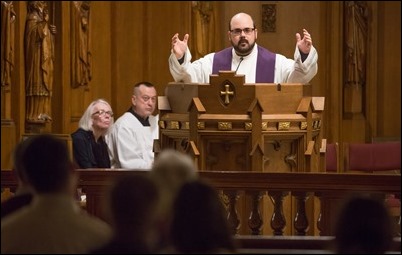
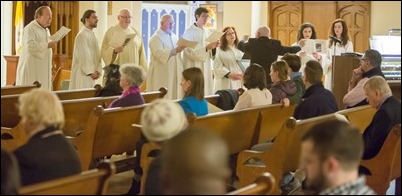
After each psalm, one candle on the Tenebrae hearse, which is sort of a large candelabra with 9 candles, is put out until only one candle, symbolizing Christ, is left.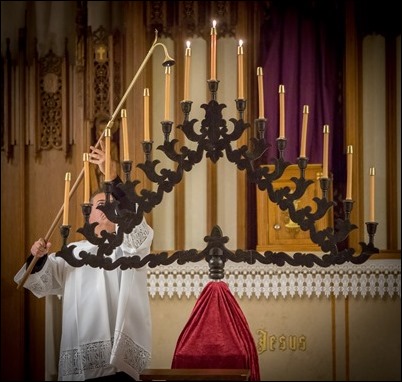
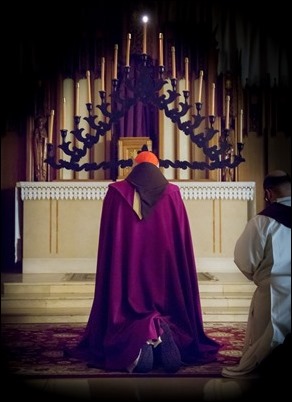
I was very pleased to see we had such a good turnout for this celebration that we only reinstituted in the archdiocese a few years ago.
The next day was, of course, Holy Thursday and we held a bilingual celebration of the Mass of the Last Supper in the evening.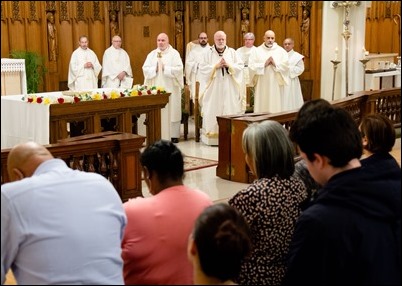
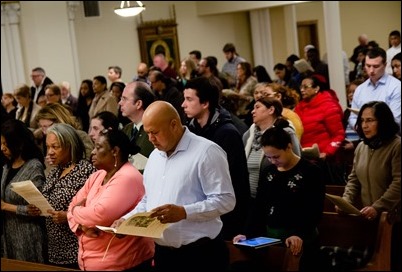
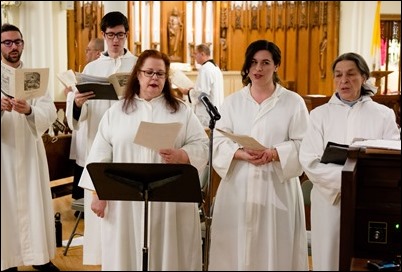
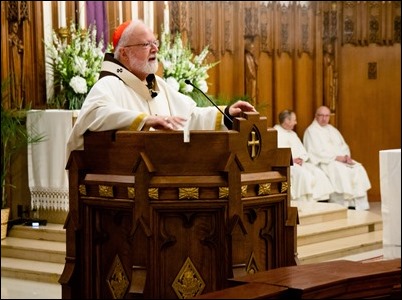
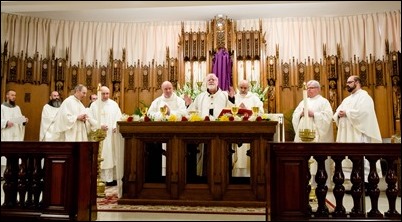
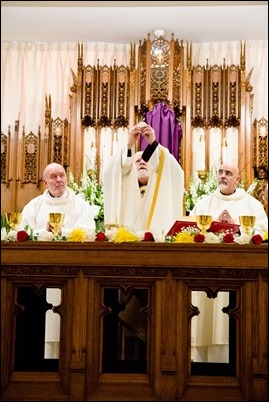
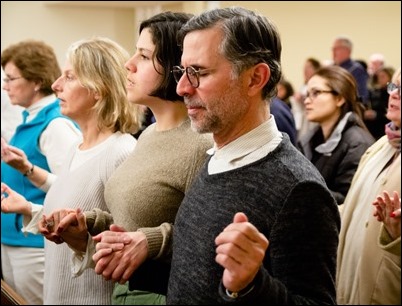
At that Mass, which commemorates Christ’s institution of the Eucharist, we also perform the washing of the feet, in which the priest washes the feet of members of the congregation just as Christ did, taking the last place, and washing the feet of the Apostles.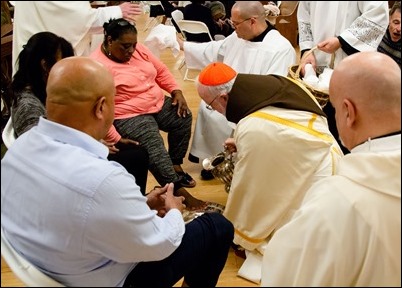
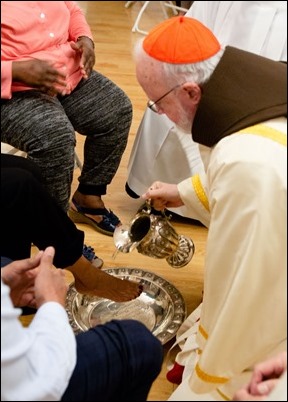
Following the Mass, the Eucharist is brought to the repository where a Eucharistic Vigil is held until midnight with sung compline at 11:30.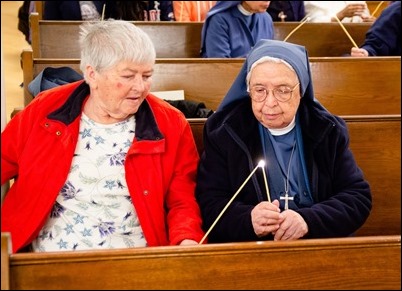
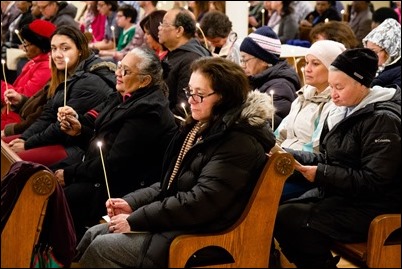
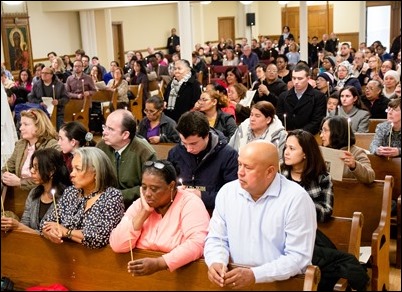
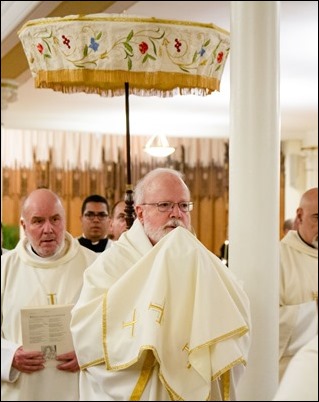
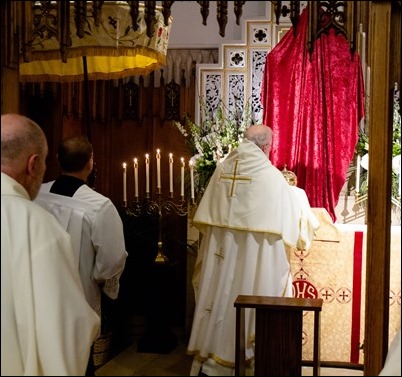
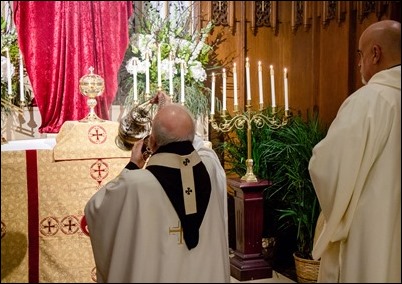
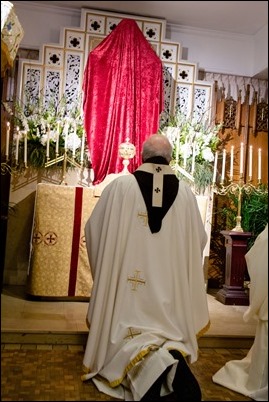
We are always very pleased to be joined by a large number of university students who come for the Eucharistic Vigil. This year there were about 200 students with us, accompanied by Father David Barnes, the chaplain at Boston University. Many of them had followed the tradition of visiting seven churches on Holy Thursday and this would have been their last stop.
The following day, Good Friday, at the Cathedral we had three different Stations of the Cross, in addition to the English service in the afternoon the Spanish service in the evening. So, while it’s a very busy day, it’s a very beautiful day, as well.
In the morning I was visited by the first group of people doing the stations, the Way of the Cross for Life led by Colbe Mazzarella.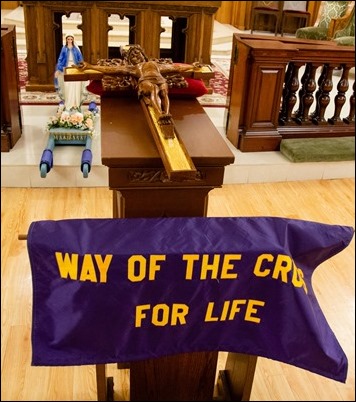
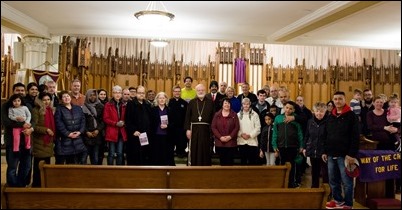
Then, at noon, we had the bilingual living Stations of the Cross, which is enacted by the young people of the Cathedral Parish. They always do such a great job every year of playing the parts of Jesus, Mary, the centurions and other figures of the Lord’s Passion, as they go through the streets, praying the different stations at various sites throughout the neighborhood.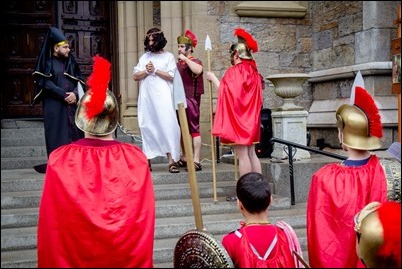
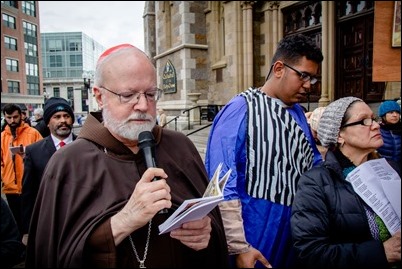
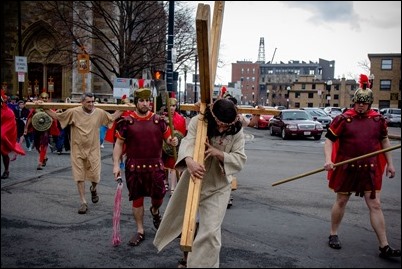
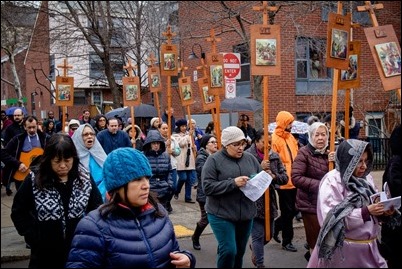
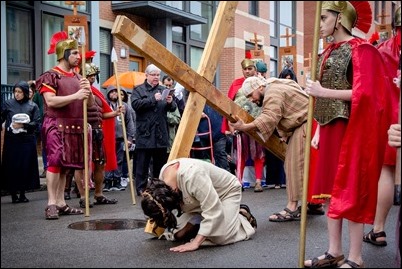
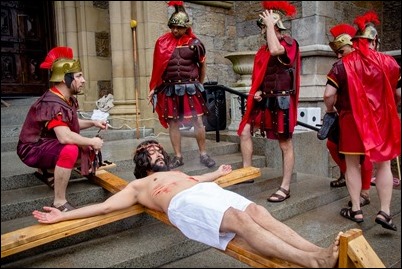
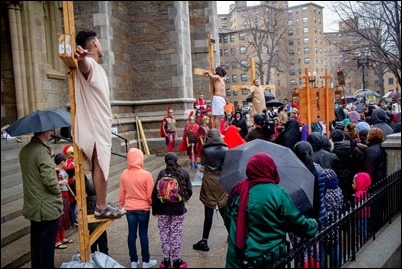
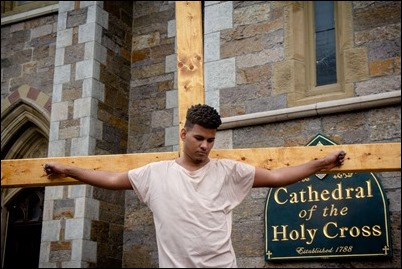
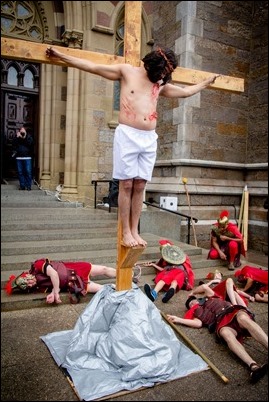
Later on, I was visited by the third Stations of the Cross group, which was from Communion and Liberation. Each year they hold a Stations of the Cross on Boston Common and conclude it at the Cathedral. I was very happy to welcome them and say a few words to them.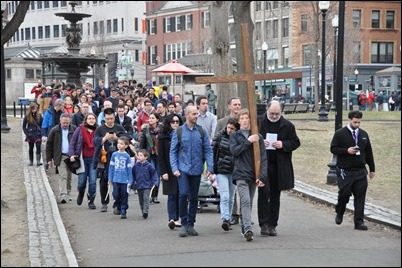
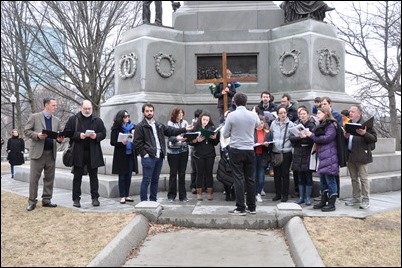
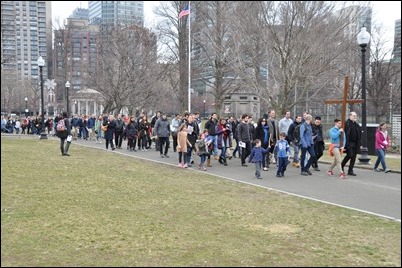
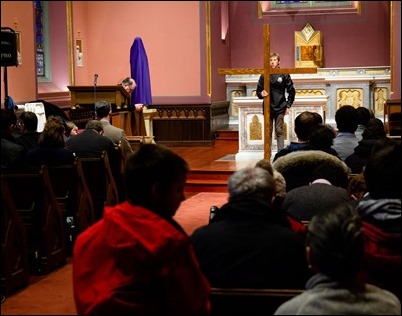
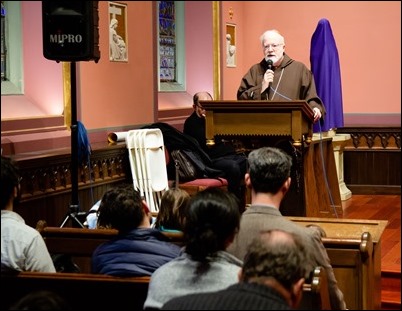
As they do each year, they presented me with their annual poster.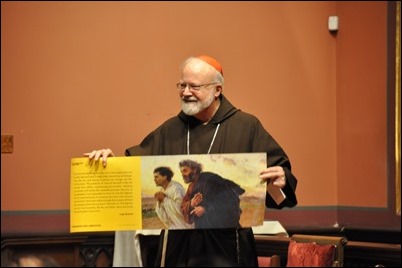
This year’s image depicts Peter and John running to the tomb on Easter morning.
In the afternoon we had our Liturgy of the Lord’s Passion with the adoration of the cross, where our Cathedral Rector, Father Kevin O’Leary preached.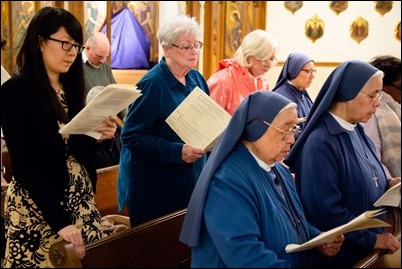
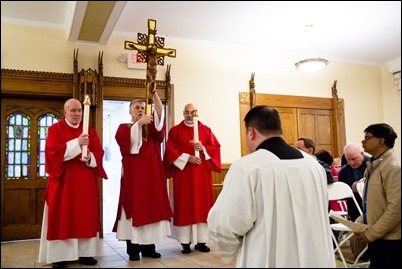
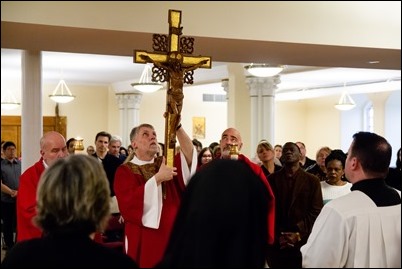
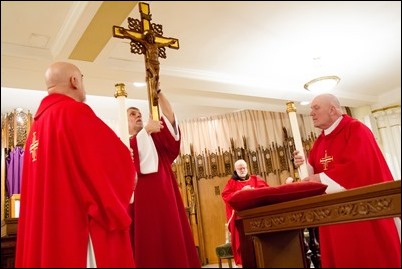
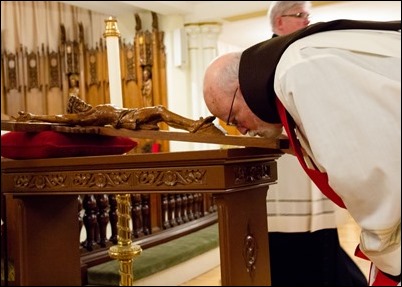
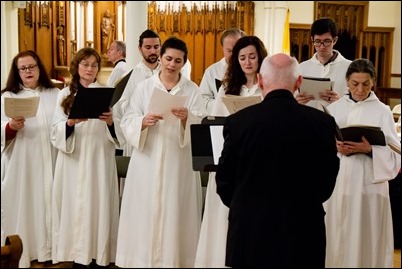
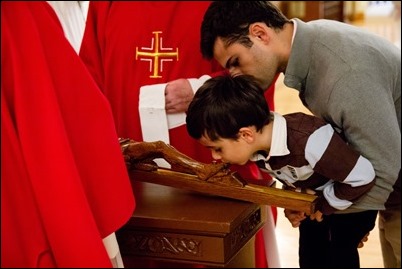
We were very pleased to be joined by many Knights and Ladies of the Holy Sepulchre who accompanied the cross during the veneration.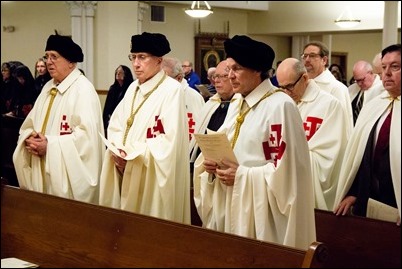
Then, in the evening, we had our Good Friday service in Spanish.
Many people come from around the archdiocese to join our celebrations. On Good Friday I was very pleased to meet Mr. and Mrs. Roosevelt, friends of Father O’Leary.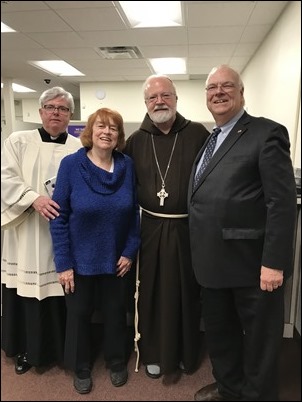
Saturday, as I like to do each year, I joined members of the Memores Domini, a group of consecrated Catholic laymen who follow the spirituality Communion and Liberation, for lunch at their house in Cambridge.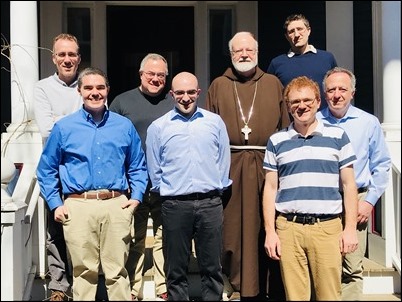
Then, that evening, we had our bilingual celebration of Easter Vigil.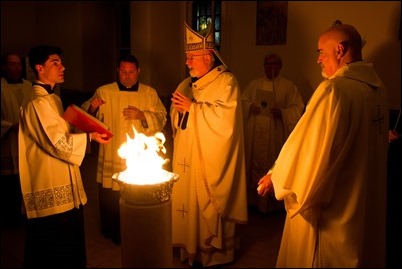
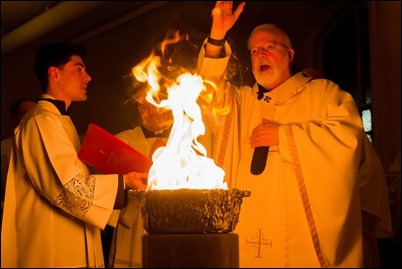
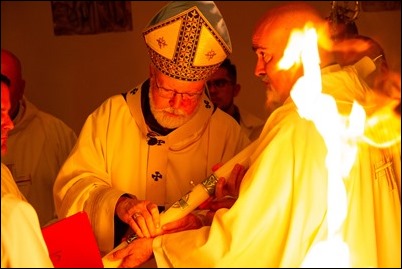
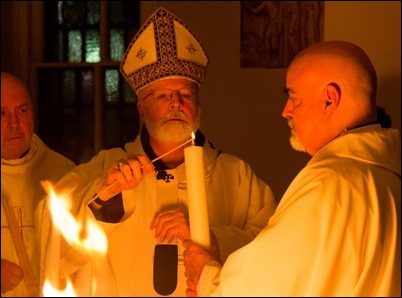
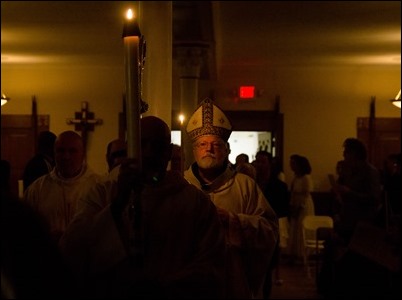
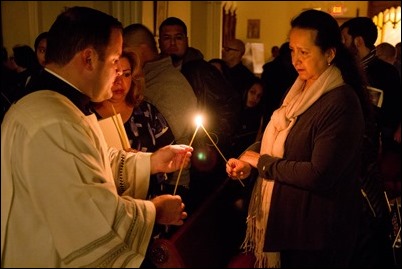
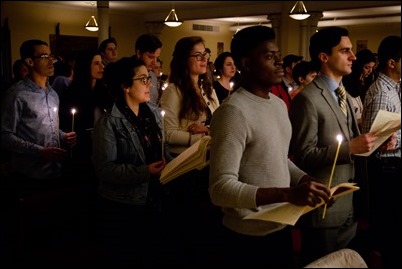
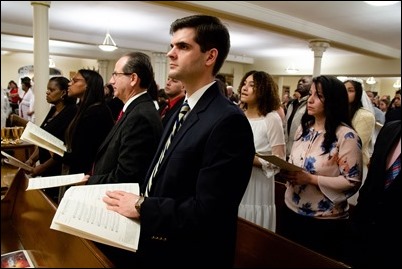
We had a great joy of having 14 individuals either baptized or received into the Church.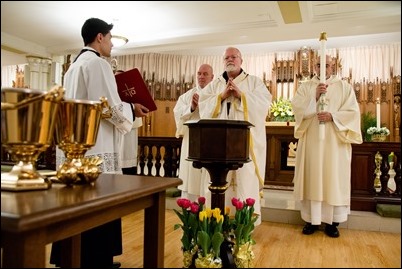
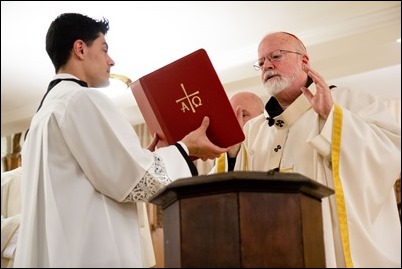
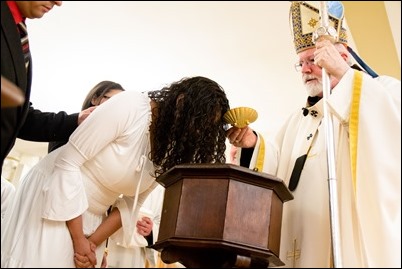
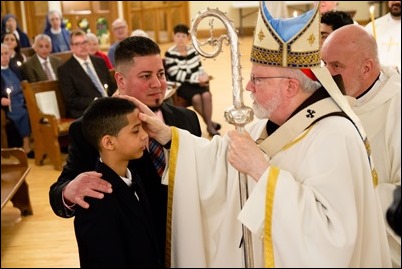
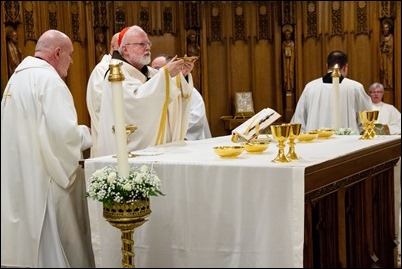
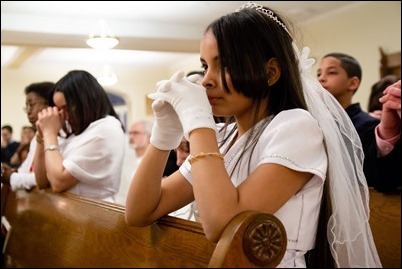
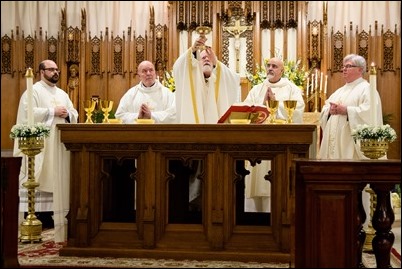
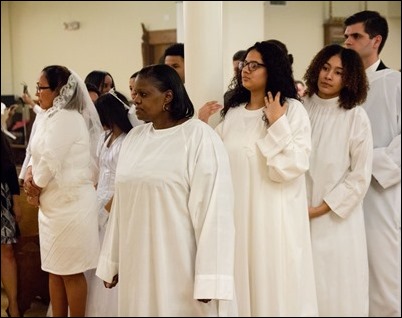
In my homily, I welcomed our new Catholics and expressed our joy that they have answered the call of God’s grace to join our faith community. We are very grateful to Sister Petra, Father Pablo and Sister Ruth who prepared these people for their reception into the Church.
On Easter Sunday, we had our televised Mass on WLVI Channel 56. Then, I celebrated the 11:30 a.m. Mass at the cathedral.




Afterwards, I had lunch with my sister, Mary Ellen Woods, and my friends the Lobão family who were visiting from Portugal. 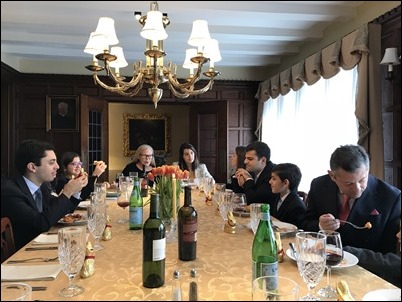
I also want to share with you some photos sent to me by my friend, Father Emilio Biosca, of the Holy Week activities at his parish, Purisima Concepcion (Immaculate Conception) in Manzanillo, Cuba.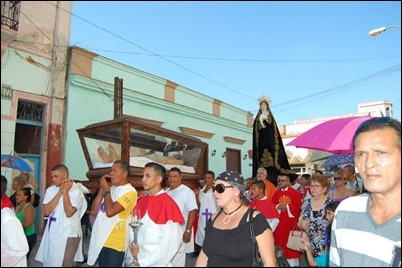
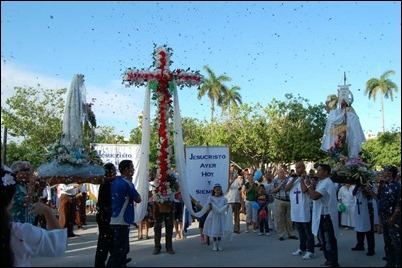
We were very happy to learn that he is now able to expand the parish activities during Holy Week, including processions through the streets and that a large number of catechumens were baptized this year. It certainly is very encouraging news.
On Monday morning, I went to Regina Cleri for the wake of Father John O’Donnell who had passed away on the Wednesday before Holy Week. I wanted to express my condolences to the members of his family, classmates and friends who were there. 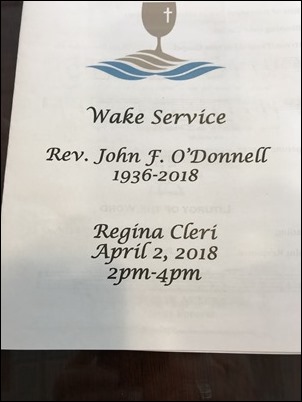
He was a fine priest and a man with many different talents and interests. I particularly recall spending time with him on our joint Catholic-Orthodox pilgrimage in 2007 to Rome, Constantinople and St. Petersburg.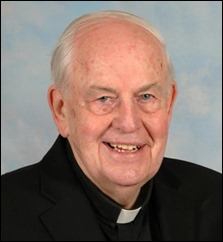
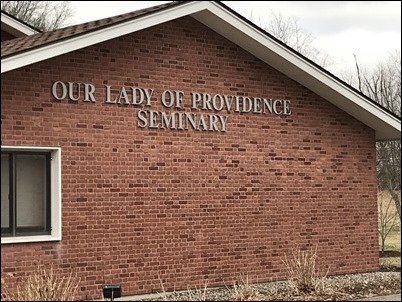
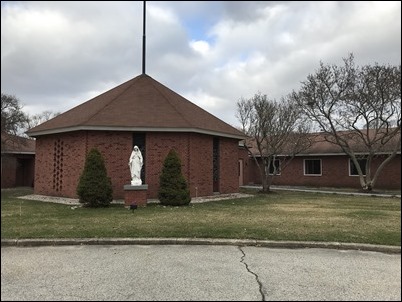 Later that day, I paid a visit to our college seminarians studying at Our Lady of Providence Seminary in Rhode Island. We had Mass together and, afterward, I joined the seminarians for dinner.
Later that day, I paid a visit to our college seminarians studying at Our Lady of Providence Seminary in Rhode Island. We had Mass together and, afterward, I joined the seminarians for dinner.
With our three college seminarians studying in Providence, Rodrigo Martinez, David Joanis and Christopher Letizia, and the rector, Father David Gaffney.
Tuesday, I went to attend the funeral of Margaret O’Connell, the mother of Bishop Mark O’Connell, at Most Precious Blood Parish in Dover. She had passed away on Palm Sunday, just a few days shy of her 92nd birthday.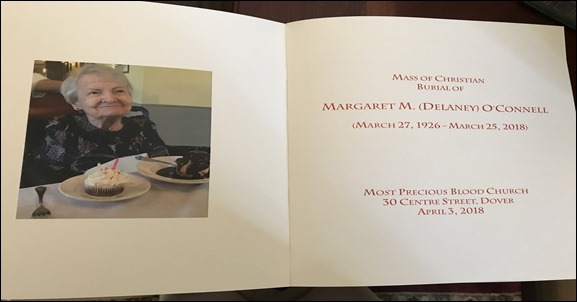
Mrs. O’Connell’s had a brother who was a priest of the archdiocese, Father David Delaney, as well as a sister who is a nun, Sister Jean Delaney, OP, who was present with us.
Bishop Mark gave a beautiful homily and reflection at the Mass. It was a wonderful testimony to her faith, her devotion to the Church and her family.
While I was at Most Precious Blood, I was struck by this photo, which is the in sacristy, which shows a Mass being celebrated in a home in Ireland during the time of the persecution. Normally, of course, they would have had Mass in the churches, but during the time of the persecution, they had Mass out in the countryside or in people’s cottages. At Christmastime, they used to put a candle in the window, which was an invitation to a priest who was in hiding to come and celebrate Mass there.
This is, for me, just a reminder of the fact that people have suffered religious persecution in the past and are still suffering in different parts of the world today.
Until next week,
Cardinal Seán
